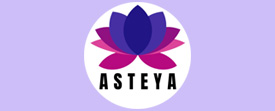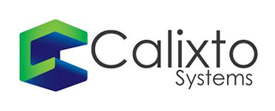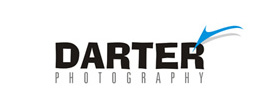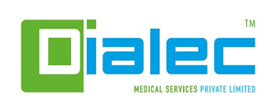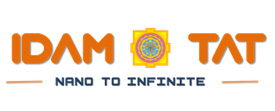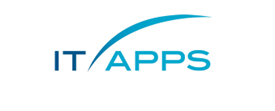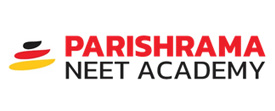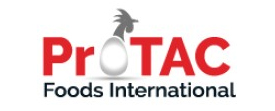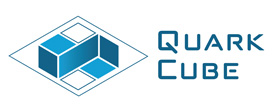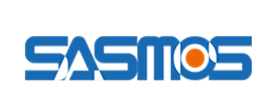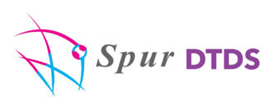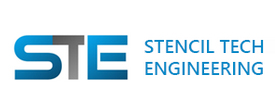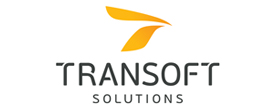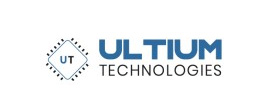Trademark Registration Services
Protect your brand identity with trademark registration. We assist with filing, ensuring your logo, name, or design is legally secured against infringement.

A trademark is an identifying sign, symbol, word, or group that identifies and differentiates the goods or services of one entity from those of others. Indian law on trademarks is governed by the Trade Marks Act, 1999, which states the legal provisions for the registration, protection, and enforcement of trademarks. The government agency charged with the duty of administering trademarks in the country is the Trade Marks Registry under the Controller General of Patents, Designs, and Trade Marks.
Why do businesses need to register their trademarks?
Registration of a trademark gives you an exclusive right to use the mark regarding the goods or services for which your mark has been registered. This exclusivity helps you to prevent unauthorised use or imitation by your competitors and thereby safeguarding your brand's identity and reputation. A registered trademark is also considered an intangible asset that gets more value to the business and strengthens it in the marketplace.
As stated by the World Intellectual Property Organisation, "India ranked fourth globally in trademark filings, with a 6.1% increase in 2023," thus showing that Indian businesses have understood the importance of trademark protection.
The Trade Marks Registry plays an important role in your trademark registration process. It is the responsible party for examining your trademark registration applications, ensuring compliance with legal requirements, and maintaining the official register of trademarks. The Registry also publishes the Trade Marks Journal, which lists accepted applications, allowing for public scrutiny and opposition if necessary. Interacting with the Trade Marks Registry will ensure that this procedure will be smoothly taken through and legal protection secured for one's trademark.
Why Choose Benchmark
At Benchmark, we understand and appreciate the essence of protecting the identity of your brand in the modern competitive business. Our trademark registration services are designed to provide an efficient, legally compliant, and smooth process that assures you of the best care, right from the beginning to the end, while ensuring that your intellectual property rights are protected accordingly. Stress-free and straightforward trademark registration for companies of any size may be realised through our experience and commitment to excellence.
Here's why Benchmark is your ideal partner for trademark registration:
- We conduct comprehensive trademark availability searches to prevent conflicts.
- Expertise in filing Form TM-A with precise details for error-free submissions.
- End-to-end assistance in navigating the Trademark Registry requirements.
- Professional handling of objections, oppositions, and registrar communications.
- Seamless support for trademark renewals and modifications.
- Efficient management of trademark-related legal documentation, including Form TM-48 (Authorisation of Agent).
Our Services
At Benchmark, our trademark registration services are made to meet the diverse needs of your business, ensuring smooth compliance with the Trade Marks Act, 1999. Whether you are an individual entrepreneur or a multinational corporation, we provide a range of specialised services to safeguard your brand identity and simplify the trademark registration process.
Our service offerings under Trademark Registration include:
- Assistance with Trademark Search to verify availability and avoid conflicts.
- Filing and submission of Form TM-A for new trademark applications.
- Advisory on trademark classification under the Nice Classification (NCL) for appropriate categorisation.
- Representation in trademark opposition and objection proceedings before the Trademark Registrar.
- Preparation and filing of Trademark Renewal Applications to ensure continuous protection.
- Support for trademark assignments and licensing, including drafting required agreements.
- Filing TM-P for rectifications, corrections, or amendments in registered trademarks.
- Advisory on trademark infringement cases and guidance on legal remedies.
- Monitoring services to track trademark status and flag potential conflicts.
- Preparation of the necessary documents, including TM-48 (Power of Attorney) and legal affidavits.
Who Can Register a Trademark
Trademark registration is open to a wide range of individuals and entities, providing them with exclusive rights to protect their brand identity. Whether you are an entrepreneur, a corporation, or a creative professional, registering your trademark ensures legal ownership and prevents unauthorised usage.
Below is a breakdown of who can register a trademark, categorised by entity type and their specific requirements:
| Applicant Type | Eligibility | Examples |
|---|---|---|
| Individuals | Any individual seeking to protect a unique mark for their business or personal identity. | Freelancers, artists, sole proprietors. |
| Companies | Any private limited company, public limited company, or LLP intending to secure its brand identity. | Tech startups, manufacturing firms, FMCG companies. |
| Partnership Firms | Firms registered as partnerships that aim to safeguard their brand name or logo. | Law firms, consulting firms. |
| Proprietorship Firms | Sole proprietors protect their trade names, slogans, or business identity. | Local businesses, and service providers. |
| Foreign Applicants | International entities seeking trademark protection in India under bilateral or multilateral agreements. | Global corporations, export-import businesses. |
| Startups | Entities recognised under the Startup India initiative, are eligible for reduced fees and simplified filing. | Emerging tech, e-commerce, or D2C businesses. |
| NGOs & Trusts | Non-profit organisations register their unique brand names or logos. | Charitable organisations, educational trusts |
Benefits of a Registered Trademark
A registered trademark is more than just a legal safeguard; it is a powerful tool that adds strategic value to your business. Beyond exclusivity and protection, a trademark enhances your brand's reputation, strengthens its market position, and creates avenues for growth and expansion.
Brand Exclusivity Across Jurisdictions
A registered trademark can get your brand to enjoy exclusive rights not only within India but also in countries recognising international trademark agreements, such as the Madrid Protocol.
Legal Ownership Proof in Infringement Cases
Your trademark registration certificate serves as undeniable proof of ownership, simplifying litigation in cases of brand misuse or counterfeiting.
Deterrent Against Copycats
Publicly listed trademarks in the Trademark Journal act as a deterrent to infringers, protecting your market share and reputation.
Strategic Market Differentiation
With trademark classification under the Nice Classification (NCL), businesses can define unique niches, reducing overlaps and competition in specific sectors.
Priority in Domain Name Acquisition
Owning a registered trademark often provides leverage in securing matching domain names through dispute resolution mechanisms like UDRP.
Licensing and Monetisation Opportunities
Registered trademarks can be licenced to other businesses, creating additional revenue streams while maintaining ownership of the mark.
Understanding Trademark Classes
Trademark classes are an important part of the registration process, as they categorise goods and services under the Nice Classification (NCL) system. This classification system, adopted in India, covers 45 classes, with Classes 1-34 covering goods and Classes 35-45 covering services. Selecting the correct class is crucial to ensure comprehensive protection of your trademark.
Here's a breakdown of the trademark classes:
Goods (Classes 1-34)
These classes cover physical products, including:
- Class 5: Pharmaceuticals and medical products.
- Class 9: Electronic and software products, including apps.
- Class 25: Clothing, footwear, and headgear.
- Class 30: Food and beverages like coffee, tea, and spices.
Services (Classes 35-45)
These classes pertain to service-based industries, such as:
- Class 35: Business management, marketing, and consultancy services.
- Class 41: Education, training, and entertainment services.
- Class 43: Hospitality and food service businesses.
- Class 45: Legal and personal security services.
Why Are Trademark Classes Important?
A trademark is protected only in the classes under which it is registered. For instance, a trademark registered for clothing (Class 25) won't protect similar names used for electronics (Class 9). By selecting the proper classification you can prevent disputes and objections during the registration process. If you have a business offering diverse products or services then you can register under multiple classes to ensure comprehensive protection.
Selecting the Right Class
Determining the correct class requires a clear understanding of your business activities. For example, a restaurant providing catering services should register under Class 43, while a tech company developing software would register under Class 9.
At Benchmark, we assist businesses in identifying the right trademark class to align with their products or services, ensuring they are protected in their respective industries.
Documents Required for Trademark Registration
Trademark registration requires completeness and accuracy concerning the documentation to facilitate its smooth and hassle-free processing. The required documents vary depending on the applicant belonging to different categories: individual, company, and partnership. We at Benchmark help in preparing and filing all the required documents that fulfil the requirements of the Trademark Act, 1999.
| Applicant Type | Documents Required |
|---|---|
| Individuals | - Identity proof: PAN Card or Aadhaar Card. - Address proof: Passport, Voter ID, or Driving Licence. - Trademark details (word/logo). |
| Partnership Firms | - Partnership Deed. - PAN Card of the firm. - Authorisation form (TM-48). - Trademark details. |
| Companies | - Certificate of Incorporation. - PAN Card of the company. - Address proof of the company. - Board Resolution authorising the trademark application. - Authorisation form (TM-48). |
| Startups | - Certificate of Recognition from the Department for Promotion of Industry and Internal Trade (DPIIT). - Identity proof of the authorised signatory. - Trademark details. |
| Foreign Applicant | - Power of Attorney (PoA) appointing a local agent. - Certified copy of the home country's trademark registration, if applicable. - Identity and address proof of the applicant (translated to English if necessary). |
| NGO's and Trusts | - Certificate of Registration of the trust/NGO. - PAN Card of the trust. - Authorisation form (TM-48). - Trademark details. |
Trademark Registration Process
Registering a trademark involves thorough and detailed steps to ensure your brand's legal protection and exclusivity. And this procedure is overseen by the Trade Marks Registry and follows a structured workflow that requires accuracy and compliance at each step. Below is a detailed overview of the trademark registration process:
| Steps | Description |
|---|---|
| Initial Consultation | Understand your business needs, and trademark requirements, and determine the applicable class. |
| Trademark Search | Conduct a detailed trademark availability search to check for similar or conflicting trademarks. |
| Preparing Documents | Collect and prepare all necessary documents, including TM-48 (Authorisation) and identification proofs. |
| Filling Application | Submit Form TM-A with details such as trademark description, class, and applicant information. |
| Application Allotment | Receive an application number from the Registry, which can be used to track the trademark status. |
| Examination | The Trademark Examiner reviews the application for compliance with the Trademark Act, 1999. |
| Publication in Journal | If approved, the trademark is published in the Trademark Journal for public scrutiny and opposition. |
| Opposition Period | Wait for a mandatory 120-day opposition period during which any third party can raise objections. |
| Resolution of Objection | Handle objections or oppositions, if any, through legal representation and submission of evidence. |
| Registration Certificate | Upon successful resolution or if no opposition is filed, receive the Trademark Registration Certificate. |
Common Reasons for Trademark Rejections
Trademark applications are meticulously examined, and even minor discrepancies can result in rejection. Understanding these common reasons can help applicants avoid costly delays and ensure a smoother registration process.
- Filing a trademark that lacks distinctiveness or is too generic.
- Submitting a trademark that is identical or similar to an existing registered mark.
- Using marks that are deceptive, misleading, or violate public morality.
- Failure to comply with the requirements of the Trade Marks Act, 1999.
- Incorrect or incomplete filing of Form TM-A.
- Providing insufficient or incorrect documentation, such as a missing TM-48 (Authorisation Form).
- Submitting trademarks that conflict with well-known trademarks.
- Errors in selecting the appropriate trademark class under the Nice Classification.
- Ignoring or not responding to the Examination Report or objections raised by the Registrar.
- Filing for descriptive or commonly used phrases without sufficient evidence of acquired distinctiveness.
Timeline for Trademark Renewal
A trademark under TM-R registration has a validity for 10 years from the date of registration or its last renewal. For maintaining legal protection, renewal needs to be processed before its date of expiration.
It is advisable that the owner initiates the process of renewal sufficiently in advance, say about 6 months before the date of expiry, to avoid lapses or any additional penalty. Addressed late filing is allowed for 6 months after the expiry date together with extra late fees. In case of failure to renew during such a period, the Trademark will be removed from the Trade Marks Registry and may be restored only through a separate application. Being proactive about TM-R filings will continuously keep your brand protected and exclusive.
Conclusion
Securing a registered trademark is not just a legal requirement but an essential step in safeguarding your brand identity and building long-term business value. Trademarks protect intellectual property, build brand awareness, and eventually contribute to earning market trust. Trademarks represent one of the most important means by which your enterprise may gain development and prosperity. By registering your trademark, you will have exclusive rights and make sure your business stands out in competitive territory.
At Benchmark, we fill the process of trademark registration with a shot of perfect expertise, precision, and dedication. From applying objection handling and even timely renewals, we provide customised end-to-end solutions.
Get in Touch
Take the first step today in brand protection! Contact us today and let our team guide you through an easy and efficient process of registering your trademark.
FAQs
What is the difference between a trademark and a copyright?
A trademark protects your brand elements like names, logos, slogans, and symbols that separate your business from others in the market. On the other hand, copyright safeguards original creative works like literature, music, art, and software. While trademarks focus on protecting brand identity and market recognition, copyrights are for guarding your intellectual creations from unauthorised reproduction or distribution.
How long does it take to register a trademark in India?
The trademark registration process in India normally takes anywhere between 6-12 months to complete, depending on factors like objections or opposition during the process. While filing the application grants you temporary protection and usage rights, full registration requires completing all procedural steps.
Can I register a trademark if my business is not yet operational?
Yes, you can apply for a trademark even if your business has not started operating. In such cases, you must file the application under the "proposed to be used" category, indicating your intention to use the trademark in the future. This protects your brand identity in advance, ensuring no one else can claim similar rights during the early stages of your business.
What happens if someone opposes my trademark application?
If your trademark faces opposition, it does not mean the end of the process. You will receive a notice outlining the reasons for the opposition, and you must respond within the allotted time frame (usually 2 months). This may lead to a legal hearing or negotiation to resolve the matter. With proper evidence and representation, you can successfully defend your trademark application.
How does a trademark differ from a business name registration?
A business name registration allows you to legally operate under a specific name, but it doesn't provide exclusive rights or prevent others from using the same or a similar name. A trademark, however, gives you exclusive ownership of your brand's identity elements, protecting them from unauthorised use and enhancing their market value.


